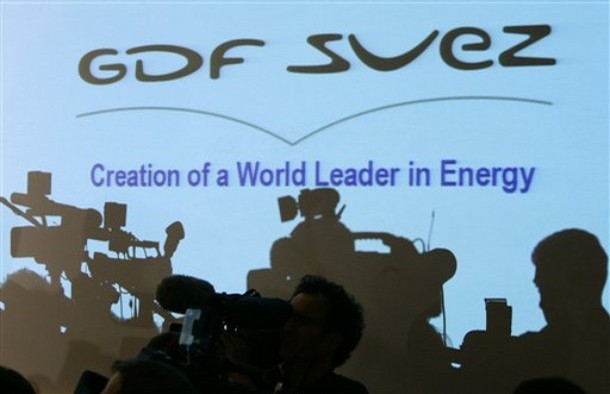Shareholders approve Suez-GDF merger, creating energy giant
 Paris - Shareholders of French natural gas supplier Gaz de France (GDF) and Franco-Belgian energy concern Suez on Wednesday overwhelmingly approved the companies' mega-merger, creating one of the world's largest energy groups, French radio reported.
Paris - Shareholders of French natural gas supplier Gaz de France (GDF) and Franco-Belgian energy concern Suez on Wednesday overwhelmingly approved the companies' mega-merger, creating one of the world's largest energy groups, French radio reported.
The vote ends a 29-month process that was kicked off by former prime minister Dominique de Villepin in early 2006 when he proposed the union in the name of "economic nationalism," to prevent a hostile takeover bid of GDF by Italian energy giant ENEL.
The new company, GDF Suez, will be listed on stock markets beginning on July 22. It will have a market value of about 90 billion euros (143 billion dollars) and employ some 200,000 people.
The French state will retain a blocking minority stake of 36.5 per cent in the new company.
However, opposition politicians and trade unions have charged that the merger is a de facto privatization of GDF and accuse French Presdent Nicolas Sarkozy of having broken his word. When he was finance minister, Sarkozy vowed never to let GDF out of state hands.
On Wednesday, presidential advisor Henry Guaino said on France 2 television that the state would remain "the decisive shareholder" in the new company. But Suez chief Gerard Mestrallet told shareholders that "GDF Suez will without a doubt be a private enterprise."
The merger also paves the way for the launch on the Paris and Brussels markets of the water supply and treatment company Suez Environnement.
Suez Environnement has annual sales of some 12 billion euros and 62,000 employees. The company was spun off from the Suez parent in order to make the merger between Suez and GDF one of near-equals.
In 2007, the private Suez concern had 47.5 billion euros in turnover, compared with 27.4 billion euros for the state-controlled GDF.
Under the merger terms agreed earlier this year, the exchange ratio was set at 22 Suez shares per 21 GDF shares, once 65 per cent of the Suez Environnement was distributed among Suez shareholders. GDF Suez holds the remaining 35 per cent. (dpa)